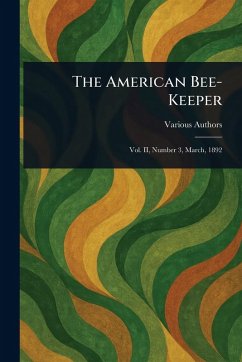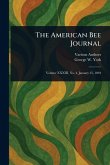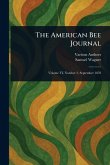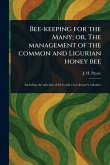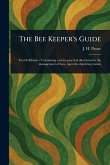Delve into the fascinating world of apiculture with "The American Bee-Keeper, Vol. 2, Number 3, March, 1892." This meticulously reproduced periodical offers a unique glimpse into the practices and knowledge of beekeeping at the close of the 19th century. Explore articles and insights on bee culture, honey production, and various aspects of managing bee colonies. A valuable resource for anyone interested in the history of beekeeping, this volume captures the spirit and challenges faced by early American bee-keepers. Discover traditional methods, observations on bee behavior, and discussions surrounding the latest advancements in apiculture. Whether you're an experienced bee-keeper, a history enthusiast, or simply curious about the natural world, this periodical provides a captivating window into a bygone era of animal husbandry. A treasure trove of information on bees and their vital role in our ecosystem. This work has been selected by scholars as being culturally important, and is part of the knowledge base of civilization as we know it. This work is in the public domain in the United States of America, and possibly other nations. Within the United States, you may freely copy and distribute this work, as no entity (individual or corporate) has a copyright on the body of the work. Scholars believe, and we concur, that this work is important enough to be preserved, reproduced, and made generally available to the public. We appreciate your support of the preservation process, and thank you for being an important part of keeping this knowledge alive and relevant.
Bitte wählen Sie Ihr Anliegen aus.
Rechnungen
Retourenschein anfordern
Bestellstatus
Storno

